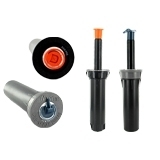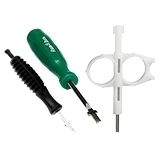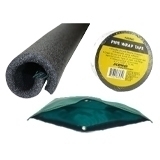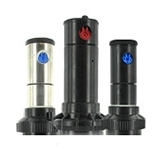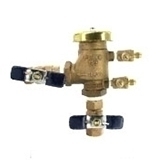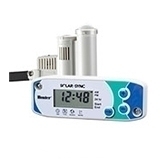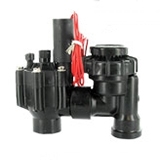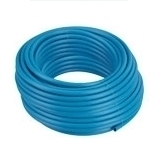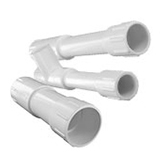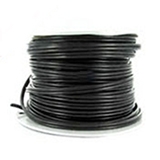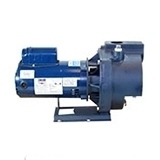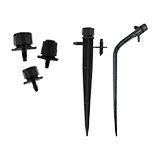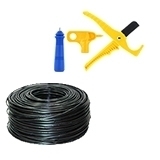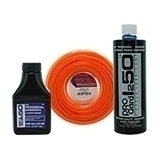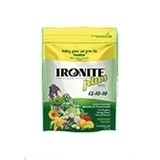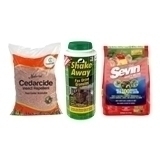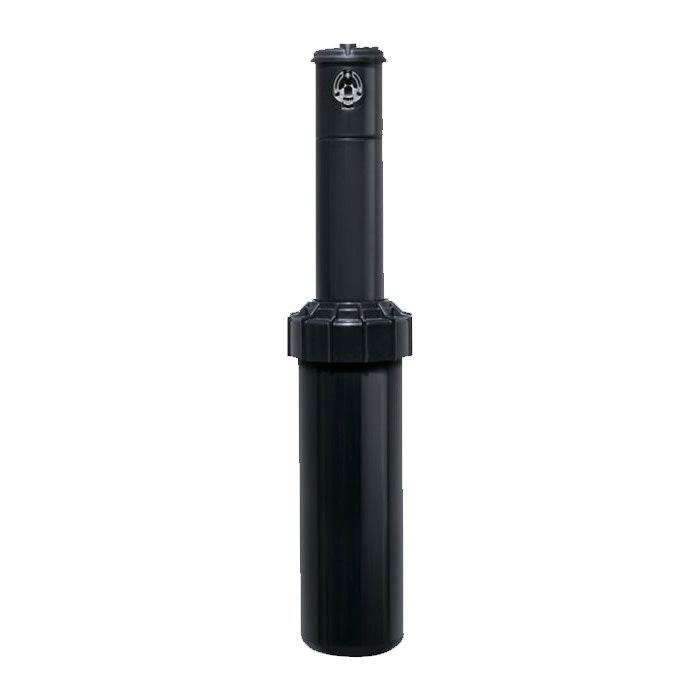Using A Plastic Male Thread And A Metal Female Thread To Connect Pipe
When connecting plastic and metal pipes using a threaded connection, always go plastic male thread to a metal female thread. If the reverse is applied the joint will eventually leak.
The is due to the different physical qualities between the two materials and the way in which the threads are designed. The female thread is slightly larger at the beginning and gradually gets smaller. The male thread has the opposite configuration. The male thread starts small and becomes larger in diameter as the threads progress.
When you screw the male to the female the connection actually gets tighter. If you screw metal into plastic the metal can and almost always causes fractures in the female plastic. Plastic female fittings are usually thicker or reinforced to compensate. There are plastic female threaded fittings that have been reinforced to withstand stress fractures. These fittings are typically used in heavy duty commercial applications and irrigation for agriculture.
Use (PTFE) Teflon Tape
To connect a plastic male threaded pipe to a female metal pipe you will also need to use a sealer. A sealer helps “seal” the connection and also serves as a lubricant, allowing an easier assembly.
Teflon tape, aka PTFE tape or plumber’s tape, is a film used for sealing pipe threads. Since the Teflon tape is malleable and impermeable it acts similarly to putty when it is compressed. Use (PTFE) Teflon Tape To Create A Water Tight Seal On A Male Threaded Plastic Pipe.
Teflon Tape Colors & Thickness:
The tape is most commonly white when used in plumbing applications, but it also comes in various colors. Colored teflon tape is often used to correspond to color coded pipe lines (ex. yellow for natural gas, green for oxygen etc.).
Teflon tape also comes in different thickness. If the tape is very thin it will take more tape to cover the threads. For this reason we recommend purchasing the thicker tape because it tends to be more economical. Sealing The Connection With Teflon Tape
How To Use Teflon Tape:
To easily get the joints started, leave the first thread on the male pipe without tape. Pull the tape taught but do not overstretch while you wrap the male threads of the pipe. If you can see the shape of the threads through the tape you are wrapping the pipe with the correct taughtness.
It should take 3-4 wraps on the male threads using a teflon tape with a good thickness to seal the pipes together well.
Wrap the male threads in the same direction as the female threads. If you wrap the pipe in the wrong direction you run the risk of the tape falling off while screwing the pipes together. If you are looking from the end of the male threads you will be wrapping the pipe clockwise.
Pipe Dope:
We don’t recommend the use of pipe dope as a sealer for pipe connections in irrigation installations or repairs. Pipe dope can gum up your sprinklers and many irrigation manufacturers will not honor an existing warranty if pipe dope has been used as a sealant. In addition, some pipe dope created for metal pipe is caustic if used with plastic.



